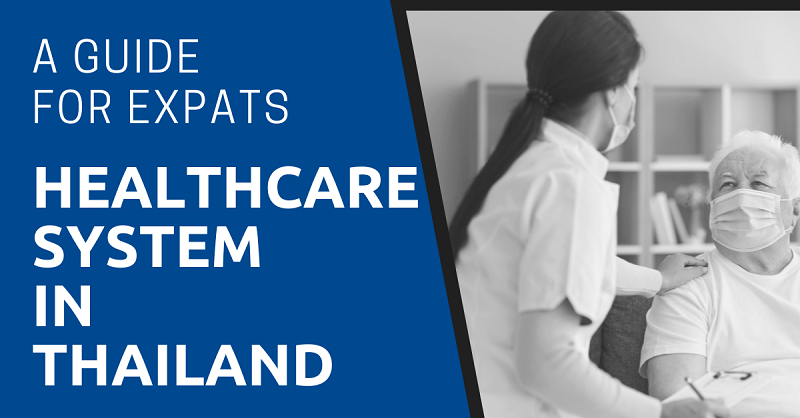
Moving to a new country comes with various stresses for the average expat, and healthcare must surely rank near the top of the list, especially for older expats and those arriving from countries with generous government healthcare schemes. Will I be able to get the medication I need? Will the standard of healthcare be good? And how will I avoid bankruptcy in case of an accident? These are some of the questions many expats might ask.
Well, we’re here to assuage any concerns you might have about healthcare in Thailand. Yes, you will likely be able to get your medication. Yes, the quality of healthcare will be good — excellent, even, if you are living in a big city and are willing to pay a little more. And there are plenty of generous insurance schemes out there to help cover your costs — you might even qualify for state assistance.
In this article, we’ll break down the options available to you in Thailand, as well as how to go about paying for it. We’ll also give you a brief guide to what to do in case of an emergency, or where to go for more common ailments.
"*" indicates required fields
Disclaimer: This article may include links to products or services offered by ExpatDen’s partners, which give us commissions when you click on them. Although this may influence how they appear in the text, we only recommend solutions that we would use in your situation. Read more in our Advertising Disclosure.
Contents
Healthcare Quality
The quality of healthcare in Thailand is very good for the most part. Its healthcare system was ranked sixth in a survey by CEOWORLD magazine in 2019, and the country is currently the fifth most popular destination worldwide for medical tourism. It is usually easy to see a specialist for just about any problem almost immediately if you’re willing to use some of the better private hospitals. Boarding in some of Thailand’s top hospitals, such as Bumrungrad International Hospital, can feel more like a stay at a 5-star luxury hotel, with private suites and round-the-clock world-class care, albeit at a price.
Many of Thailand’s top hospitals are, as you might expect, located in Bangkok, although there is a handful of good medical centers in the country’s other major cities. As you venture further into the countryside, quality tends to drop off, but you can still expect to see a qualified doctor quickly and cheaply even in the country’s provincial cities. Pretty much all the medication you’ll need is available easily at the nation’s many pharmacies, although these may be generic-brand medications rather than brand-name meds you’re familiar with.
Public Hospitals
The majority of public hospitals in Thailand are overseen by the Ministry of Public Health. A broad variety of facilities fall under this umbrella, from tiny community medical centers serving remote rural villages to enormous local hospitals in the big cities.
As one might expect, prices at public hospitals tend to be a lot more affordable than at private hospitals, both for care and for medicines. On the downside, they also tend to be much more overcrowded, and you can expect to have to wait a long time to be seen by anyone. There’s also a much higher probability that your doctor or nurse may not speak — a probability that increases substantially when you visit medical centers outside of Bangkok.
Some of Thailand’s big medical schools, such as Siriraj and Chulalongkorn, also operate their own hospitals. As these are training centers, they may also boast the latest top-of-the-line medical equipment, as well as skilled and competent doctors. On the downside, they also tend to be overcrowded, so if you plan to visit one, make sure to get there early.
For more information, check out our article on visiting hospitals in Thailand.
Private Hospitals
As an expat, you’re much more likely to use private hospitals for most of your medical needs, particularly if you’re a Westerner. After all, private hospitals in Thailand tend to offer a high standard of care, which cost a fraction of what private care would cost in most Western countries.
By the way, you should disregard any preconceived notion you may have of what a hospital in Thailand looks like. There are no dimly-lit corridors with patients in wheeled-beds clogging up the walkways and harried doctors rushing back and forth on hour 30 of their never-ending shifts.
The top private hospitals in Bangkok feel more like luxury resort destinations, only with medical specialists available to see you on demand.
Granted, private hospitals are a lot pricier than government hospitals, but with a decent health insurance plan (see below), the costs should be negligible.
Some of the best private hospitals include Bumrungrad International Hospital, Sukumvit Hospital, and Samitivej in Bangkok, Chiang Mai Ram and, a little confusingly, Bangkok Hospital in Chiang Mai and Vachira Hospital in Phuket. For more recommendations and contact information, you can check out our article about hospitals in Thailand.
Paying for Your Healthcare
Although Thailand provides free at point-of-service healthcare, the majority of government healthcare schemes are limited to Thai citizens only (with one exception, which we’ll get into shortly). As an expat, you are likely to need (or want) private health insurance.
The good news is that if you’re working here, your employer will likely provide you with health insurance as one of the perks of employment. If they’re a good employer, this may be all you need. But chances are, the coverage they offer will only be useful in emergencies and basic medical services. For everything else, you’ll probably want to opt for a more comprehensive health insurance.
Let’s look at all the available options:
Public Healthcare Schemes
Universal Healthcare
The Thai government offers a number of schemes to cover healthcare costs for those who need it, such as the Civil Servant Medical Benefit System (CSMBS) or the Social Security System. The most widely-used scheme by far is the Universal Coverage Scheme (UCS), which covers around 99.5% of the population. Anyone enrolled in this scheme can apply for a Card for Care, which entitles them to comprehensive, free at point-of-use medical care.
Unfortunately, UCS is currently only available to Thai citizens.
For more information, check out our article on universal health coverage in Thailand.
Social Security
One public healthcare scheme that is thankfully available to expats is the Social Security System (SSS). Under this scheme, a small amount of money is deducted from your salary each month, which then entitles you to a number of healthcare benefits. These include a free annual check-up, dental treatment (up to THB900) and free treatment at a government hospital for anything deemed “medically necessary”, among other benefits.
For a more detailed breakdown of the benefits, check out our article on the Social Security system.
Private Insurance
There are many options when it comes to selecting a private insurance plan that choosing one can be quite a headache. They can, however, all be broadly grouped into two categories for Thailand-based expats: local and international.
For a more detailed breakdown of the options, check out our article on health insurance in Thailand.
Local Insurance
This covers all health insurance plans offered by companies based in Thailand. Popular local insurance companies include Aetna (formerly BUPA), Axa, AIA, and LMG.
Taking out a local insurance plan may differ a little from the plans in your home country. Rather than providing you with an annual limit for healthcare spending, you’re given limits on what benefits you can claim – for example, you might be limited to THB900 per outpatient visit, or THB2000 per night for room and board. Recently, however, several insurance companies have started offering plans that more closely resemble international insurance plans, albeit with lower limits, such as Krungthai-Axa’s iHealthy Ultra.
On the one hand, taking out a local insurance plan will likely be cheaper than a home insurance plan, as there are far more options available. Processing payments is also a lot faster, as everything can be done within the country. One downside is that they may not provide as much flexibility as an international insurance plan might. For example, you’re unlikely to be covered for accidents that happen while you’re travelling abroad.
To compare insurance plans, check out the comparison site, Mister Prakan.
International Insurance
International insurance plans are the ones you apply for abroad but which still provides coverage within Thailand (amongst other countries). Examples of this type of insurance include travel insurance and expat insurance.
International insurance policies can give you much more flexibility, particularly if you’re also a frequent traveller. There are plans available from companies such as Cigna Global, which provides coverage for care in hospitals region-wide (e.g., across Asia) or even worldwide. Traditionally, these plans offered higher coverage limits, but in recent years, coverage has almost reached parity with the local plans.
On the downside, these plans can be a little pricier than those offered by local insurance companies. Having to deal with an international company can hold up your payment processing, too.
For more information, check out our comparison of expat insurance plans that are currently available.
Pharmacies
Pharmacies can be found all over Thailand, and you shouldn’t have any problems buying over-the-counter medication for mild ailments.
The variety of pharmacies range from big local chains, such as Boots or Watsons, to small mom-and-pop operations, each varying in terms of the cost and availability of medications. Medications in Thailand is generally inexpensive compared to those in Western countries, and you’ll likely be surprised at the broad selection available at most Thai pharmacies.
In addition, you’re unlikely to need a prescription for most over-the-counter drugs at pharmacies in Thailand. However, you may need one for narcotic or psychotropic-based drugs. If you’re currently taking a certain type of medication, it’s probably a good idea to get a prescription from your home country as well as a sample to a local hospital as soon as you arrive. We’ll go into a little more detail about the process of taking controlled medication into the country below.
For more detailed information, you can check out our article about pharmacies in Thailand.
Bringing Medication Into Thailand
If you are currently taking medication, it’s best to check out the Thailand Food and Drugs Administration’s (FDA) website ahead of time to see if your meds are on the controlled substances list. Controlled drugs are divided into narcotics and psychotropics and subdivided into categories, with some categories being completely illegal and others heavily controlled.
If your medication falls into the ‘legal but controlled’ category, you may still be able to bring it into the category, albeit with some paperwork required. You may also need to declare your medication at customs when arriving in the country.
Whatever you do, do NOT attempt to bring in any non-generic medication without first ensuring that it’s safe and legal to do so. Penalties for smuggling in controlled substances are strict, and you probably don’t want to spend the first few months or years of your expat life locked up in a Thai prison.
For a more in-depth guide, check out our article on to what to do when bringing medication into Thailand.
Getting Sick
The best thing to do for mild illnesses in Thailand is likely similar to what you would do in your home country: stock up on medication, stay at home, and get plenty of rest. As stated above, pharmacies can be found everywhere and are generally well-stocked with over-the-counter painkillers, decongestants, antidiarrhea medicine, and the like, so it’s worth stopping by your nearest pharmacy if you’ve got the strength. Staff in pharmacies in Bangkok and in most tourist-heavy areas are likely able to speak good English and highly professional, so don’t be afraid to ask for their advice if needed.
Generally speaking, most expats in Thailand will go to a hospital if they need to see a doctor, even for relatively mild complaints. While you can find doctors’ clinics around Bangkok, they are frequently overcrowded and the overworked doctors will likely have little time to tend to you. There’s also the possibility that in certain hospitals, many doctors won’t be able to communicate well in English. Most insurance plans in Thailand will cover outpatient consultations, so if you’re already covered anyway, you’d be better off going to a hospital where you can see a specialist quickly.
If you’re working in Thailand, you should know that Thai labor law dictates that you’re entitled to up to 30 paid sick days a year. For three or more consecutive days, you will need to present a doctor’s certificate, so make sure you get one, if necessary. Most doctors in Bangkok will offer you one during your consultation as standard procedure.
Emergencies
The number to dial in case of emergencies in Thailand is 191. If the person taking your call can’t speak English and/or there isn’t a Thai speaker around to help you, you can try calling the Tourist Police on 1155, and they will help redirect you.
To call for a public ambulance directly, you can dial 1669. Public ambulances are often manned by volunteers working for groups like the Poh Teck Tung Foundation or the Ruamkatanyu Foundation. As you can imagine, this an extremely difficult and thankless task for the volunteers, so do consider sending a donation their way if you ever see a collection. To call for a private ambulance, you can call 1724 or 1719. It’ll get you to the hospital quicker, but for a price.
Now on to You
As a general rule, you should have nothing to worry about when it comes to getting healthcare in Thailand. With a good insurance plan, you can expect a high standard of care at Thailand’s reputable hospitals and a wide availability of different medications at the country’s many pharmacies. And make sure to do some research when finding an insurance plan that will suit your needs.
Essential Guides on Healthcare System in Thailand
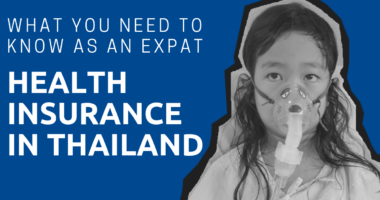 Health Insurance in Thailand: What You Need to Know as an Expat in 2024 2023-11-20 As an expat in Thailand, you might be wondering why you should obtain health insurance here. While the cost of… ... Read more
Health Insurance in Thailand: What You Need to Know as an Expat in 2024 2023-11-20 As an expat in Thailand, you might be wondering why you should obtain health insurance here. While the cost of… ... Read more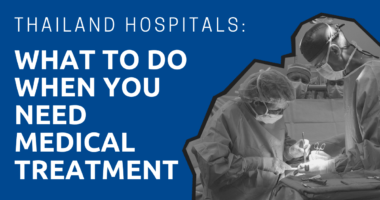 Thailand Hospitals: What to Do When You Need Medical Treatment 2024-02-19 Sooner or later you’re going to have to visit a hospital in Thailand. Maybe you’ll come down with the flu.… ... Read more
Thailand Hospitals: What to Do When You Need Medical Treatment 2024-02-19 Sooner or later you’re going to have to visit a hospital in Thailand. Maybe you’ll come down with the flu.… ... Read more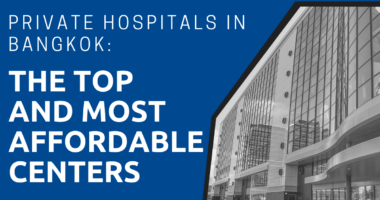 Private Hospitals in Bangkok: The Top and Most Affordable Centers 2023-07-08 Bangkok has become one of the top destinations in the world for medical tourism, thanks to affordable prices, English speaking… ... Read more
Private Hospitals in Bangkok: The Top and Most Affordable Centers 2023-07-08 Bangkok has become one of the top destinations in the world for medical tourism, thanks to affordable prices, English speaking… ... Read more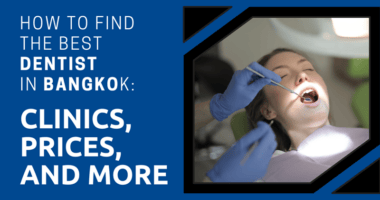 How to Find the Best Dentist in Bangkok: Clinics, Prices, and More 2023-12-11 There are many dental clinics in Bangkok, and it can be hard to choose one. You might have questions like:… ... Read more
How to Find the Best Dentist in Bangkok: Clinics, Prices, and More 2023-12-11 There are many dental clinics in Bangkok, and it can be hard to choose one. You might have questions like:… ... Read more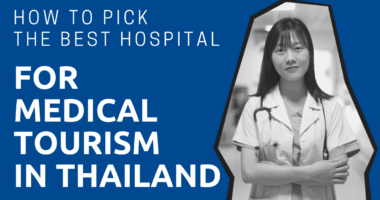 How to Pick the Best Hospital for Medical Tourism in Thailand 2023-09-04 Traveling to a foreign country to get medical treatment might have seemed like a novel idea a decade ago. But… ... Read more
How to Pick the Best Hospital for Medical Tourism in Thailand 2023-09-04 Traveling to a foreign country to get medical treatment might have seemed like a novel idea a decade ago. But… ... Read more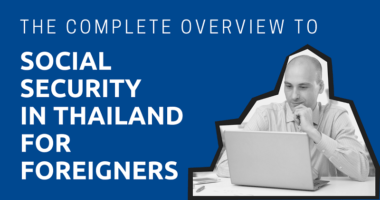 The Complete Overview to Social Security in Thailand for Foreigners (2024) 2024-02-06 When you work at a company in Thailand, you have to register for the social security system. However, the contributions… ... Read more
The Complete Overview to Social Security in Thailand for Foreigners (2024) 2024-02-06 When you work at a company in Thailand, you have to register for the social security system. However, the contributions… ... Read more
Latest Guides on Healthcare System in Thailand
-
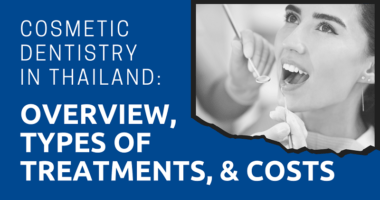 Cosmetic Dentistry in Thailand: Overview, Types of Treatments, & Costs 2024-03-22 Cosmetic Dentistry refers to any dental work specializing in improving the appearance of your teeth, gums, or smile. Whether you’re…
Cosmetic Dentistry in Thailand: Overview, Types of Treatments, & Costs 2024-03-22 Cosmetic Dentistry refers to any dental work specializing in improving the appearance of your teeth, gums, or smile. Whether you’re… -
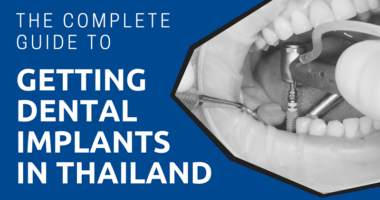 The Complete Guide to Getting Dental Implants in Thailand 2024-03-22 Getting dental implants is a big deal. If done well, It will be a procedure that you need to undergo…
The Complete Guide to Getting Dental Implants in Thailand 2024-03-22 Getting dental implants is a big deal. If done well, It will be a procedure that you need to undergo… -
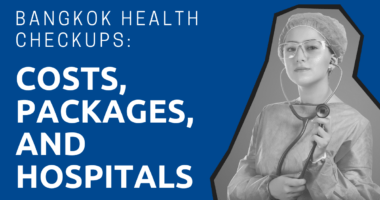 Bangkok Health Checkups: Costs, Packages, and Hospitals 2024-02-26 Do you get unexplained, frequent headaches? Does your lower back hurt all the time? Is it hard for you to…
Bangkok Health Checkups: Costs, Packages, and Hospitals 2024-02-26 Do you get unexplained, frequent headaches? Does your lower back hurt all the time? Is it hard for you to… -
 Thailand Hospitals: What to Do When You Need Medical Treatment 2024-02-21 Sooner or later you’re going to have to visit a hospital in Thailand. Maybe you’ll come down with the flu.…
Thailand Hospitals: What to Do When You Need Medical Treatment 2024-02-21 Sooner or later you’re going to have to visit a hospital in Thailand. Maybe you’ll come down with the flu.… -
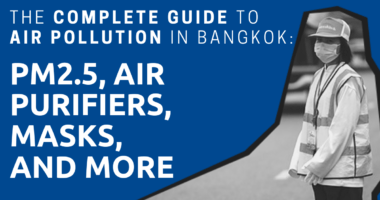 The Complete Guide to Air Pollution in Bangkok: PM2.5, Air Purifiers, Masks, and More 2024-01-15 I’m sure you’ve heard it. The pollution in Bangkok can be bad–really bad. So bad, in fact, that the government…
The Complete Guide to Air Pollution in Bangkok: PM2.5, Air Purifiers, Masks, and More 2024-01-15 I’m sure you’ve heard it. The pollution in Bangkok can be bad–really bad. So bad, in fact, that the government… -
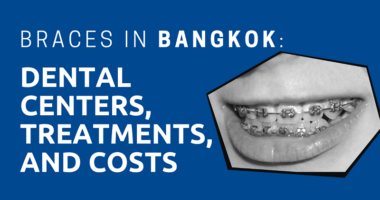 Braces in Bangkok: Dental Centers, Treatments, and Costs 2024-03-21 I had braces a few years ago, and it turned out to be the greatest thing I’ve done to boost…
Braces in Bangkok: Dental Centers, Treatments, and Costs 2024-03-21 I had braces a few years ago, and it turned out to be the greatest thing I’ve done to boost… -
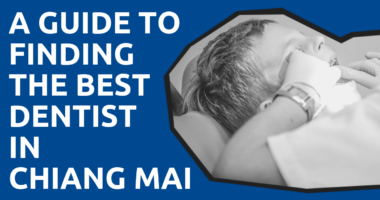 A Guide to Finding the Best Dentist in Chiang Mai 2024-03-22 Thinking about seeing a dentist in Chiang Mai? Then this article is for you. In this guide, you will learn…
A Guide to Finding the Best Dentist in Chiang Mai 2024-03-22 Thinking about seeing a dentist in Chiang Mai? Then this article is for you. In this guide, you will learn… -
 How to Find the Best Dentist in Bangkok: Clinics, Prices, and More 2024-03-22 There are many dental clinics in Bangkok, and it can be hard to choose one. You might have questions like:…
How to Find the Best Dentist in Bangkok: Clinics, Prices, and More 2024-03-22 There are many dental clinics in Bangkok, and it can be hard to choose one. You might have questions like:… -
 My Motorbike Accident in Thailand: Experiences and Lessons Learned 2023-11-06 Three years ago, I moved to Thailand from the United States. If you’re familiar with Southeast Asia, you know the…
My Motorbike Accident in Thailand: Experiences and Lessons Learned 2023-11-06 Three years ago, I moved to Thailand from the United States. If you’re familiar with Southeast Asia, you know the… -
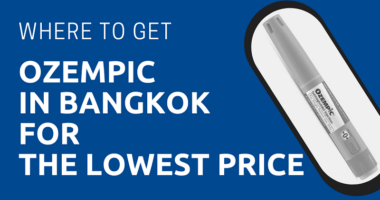 Where to Get Ozempic in Bangkok for the Lowest Price 2024-02-13 Ozempic (semaglutide) is a breakthrough medication in the field of diabetes management, offering hope and improved quality of life to…
Where to Get Ozempic in Bangkok for the Lowest Price 2024-02-13 Ozempic (semaglutide) is a breakthrough medication in the field of diabetes management, offering hope and improved quality of life to… -
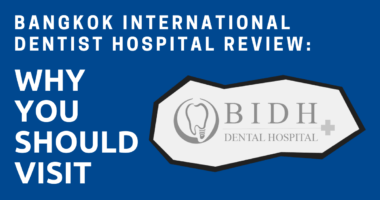 Bangkok International Dental Hospital Review: Why You Should Visit 2023-09-12 Are you looking for a good dentist in Bangkok? The thought of getting your teeth or gums drilled with a…
Bangkok International Dental Hospital Review: Why You Should Visit 2023-09-12 Are you looking for a good dentist in Bangkok? The thought of getting your teeth or gums drilled with a… -
 How to Pick the Best Hospital for Medical Tourism in Thailand 2023-10-03 Traveling to a foreign country to get medical treatment might have seemed like a novel idea a decade ago. But…
How to Pick the Best Hospital for Medical Tourism in Thailand 2023-10-03 Traveling to a foreign country to get medical treatment might have seemed like a novel idea a decade ago. But… -
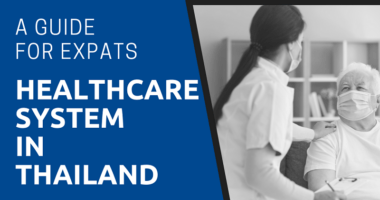 Healthcare System in Thailand: A Guide for Expats 2023-11-20 Moving to a new country comes with various stresses for the average expat, and healthcare must surely rank near the…
Healthcare System in Thailand: A Guide for Expats 2023-11-20 Moving to a new country comes with various stresses for the average expat, and healthcare must surely rank near the… -
 Private Hospitals in Bangkok: The Top and Most Affordable Centers 2023-10-03 Bangkok has become one of the top destinations in the world for medical tourism, thanks to affordable prices, English speaking…
Private Hospitals in Bangkok: The Top and Most Affordable Centers 2023-10-03 Bangkok has become one of the top destinations in the world for medical tourism, thanks to affordable prices, English speaking… -
 Bangkok Swimming Classes: How to Pick the Right School for Your Kid 2023-07-06 My one-year old daughter stood at the edge of the pool, knees bent and hesitant. I stood below her, in…
Bangkok Swimming Classes: How to Pick the Right School for Your Kid 2023-07-06 My one-year old daughter stood at the edge of the pool, knees bent and hesitant. I stood below her, in… -
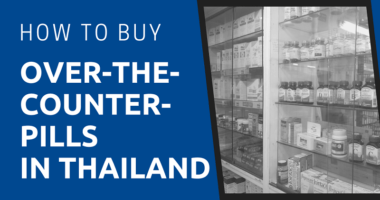 How to Buy Over-the-Counter-Pills in Thailand 2023-09-28 Everything you need to know about pharmacies in the country.
How to Buy Over-the-Counter-Pills in Thailand 2023-09-28 Everything you need to know about pharmacies in the country. -
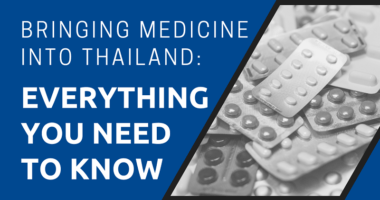 Bringing Medicine Into Thailand: Everything You Need to Know 2023-10-03 How to enter the country with Category Two through Category Four drugs.
Bringing Medicine Into Thailand: Everything You Need to Know 2023-10-03 How to enter the country with Category Two through Category Four drugs. -
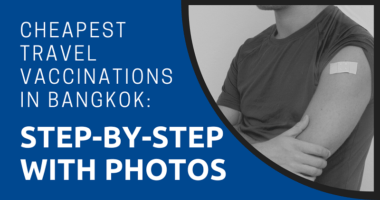 Cheapest Travel Vaccinations in Bangkok: Step-By-Step With Photos 2023-08-29 As expats in tropical Thailand, we should keep up to date with our vaccines to prevent common diseases especially foodborne…
Cheapest Travel Vaccinations in Bangkok: Step-By-Step With Photos 2023-08-29 As expats in tropical Thailand, we should keep up to date with our vaccines to prevent common diseases especially foodborne… -
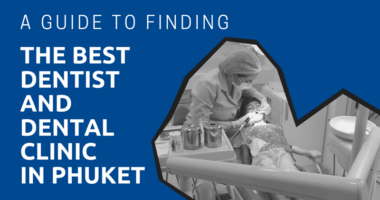 A Guide to Finding the Best Dentist and Dental Clinic in Phuket 2024-03-22 Are you currently on the lookout for a dental clinic in Phuket? Phuket is undoubtedly one of the most famous…
A Guide to Finding the Best Dentist and Dental Clinic in Phuket 2024-03-22 Are you currently on the lookout for a dental clinic in Phuket? Phuket is undoubtedly one of the most famous… -
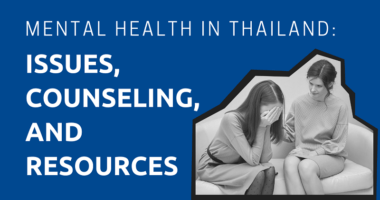 Mental Health in Thailand: Issues, Counseling, and Resources 2023-09-26 Do you know expats have a higher chance of having mental health problems? Being away from home and living in…
Mental Health in Thailand: Issues, Counseling, and Resources 2023-09-26 Do you know expats have a higher chance of having mental health problems? Being away from home and living in… -
 Personal Trainers in Bangkok: Gyms, Courses, and Prices 2023-06-26 Whether you decide to take personal training when you move to Bangkok (a decision that is highly recommended since Thai…
Personal Trainers in Bangkok: Gyms, Courses, and Prices 2023-06-26 Whether you decide to take personal training when you move to Bangkok (a decision that is highly recommended since Thai… -
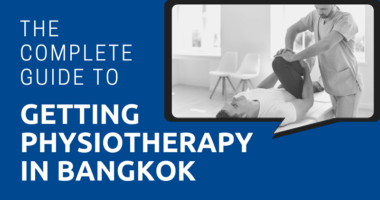 The Complete Guide to Getting Physiotherapy in Bangkok 2023-10-03 Physiotherapy is great for a number of ailments including muscle pain, office syndrome, sports injuries or after surgery. The good…
The Complete Guide to Getting Physiotherapy in Bangkok 2023-10-03 Physiotherapy is great for a number of ailments including muscle pain, office syndrome, sports injuries or after surgery. The good… -
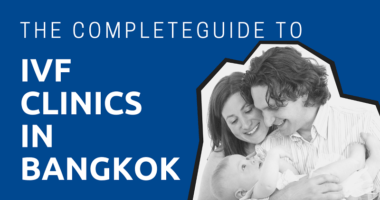 Best IVF Clinics in Bangkok: Cost, Requirements, and What to Do 2023-09-26 In vitro fertilisation, or IVF, is becoming a more popular option for couples who want to have a new family…
Best IVF Clinics in Bangkok: Cost, Requirements, and What to Do 2023-09-26 In vitro fertilisation, or IVF, is becoming a more popular option for couples who want to have a new family… -
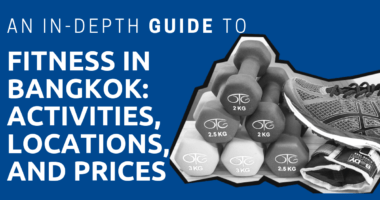 An In-Depth Guide to Fitness in Bangkok: Activities, Locations, and Prices 2023-06-27 You already know that staying fit in Bangkok isn’t easy. Liquid calories come in many forms. And with more holidays…
An In-Depth Guide to Fitness in Bangkok: Activities, Locations, and Prices 2023-06-27 You already know that staying fit in Bangkok isn’t easy. Liquid calories come in many forms. And with more holidays… -
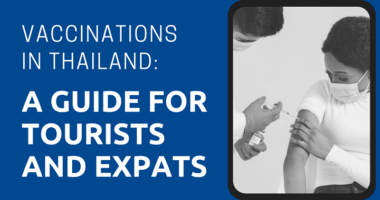 Vaccinations in Thailand: A Guide for Tourists and Expats 2023-09-20 The adage “Prevention is better than cure” from Desiderius Erasmus, (1466 – 1536), is frequently heard some 500 years after…
Vaccinations in Thailand: A Guide for Tourists and Expats 2023-09-20 The adage “Prevention is better than cure” from Desiderius Erasmus, (1466 – 1536), is frequently heard some 500 years after… -
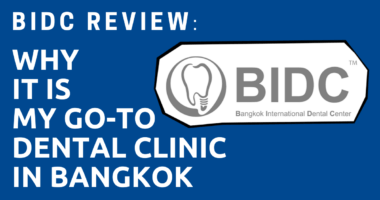 BIDC Review: Why It is My Go-To Dental Clinic in Bangkok 2023-06-26 Are you in Thailand short or long-term and need a good dentist in Bangkok? When I first got to Thailand…
BIDC Review: Why It is My Go-To Dental Clinic in Bangkok 2023-06-26 Are you in Thailand short or long-term and need a good dentist in Bangkok? When I first got to Thailand… -
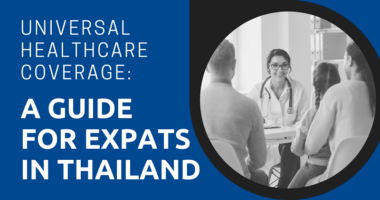 Universal Healthcare Coverage: A Guide for Expats in Thailand 2023-06-27 A closer look at the country's three healthcare systems, and whether they cover expats.
Universal Healthcare Coverage: A Guide for Expats in Thailand 2023-06-27 A closer look at the country's three healthcare systems, and whether they cover expats. -
 Bangkok Muay Thai Gyms: Costs, Reviews, and Locations 2023-06-27 I first came to Thailand to train Muay Thai in 2007. The landscape of the sport was different. The internet…
Bangkok Muay Thai Gyms: Costs, Reviews, and Locations 2023-06-27 I first came to Thailand to train Muay Thai in 2007. The landscape of the sport was different. The internet… -
 How to Find Budget Gyms that Costs Less Than 1,000 Baht a Month 2023-06-26 University and Youth Center facilities aside, there are a lot of budget gyms in Thailand which costs around 700 baht…
How to Find Budget Gyms that Costs Less Than 1,000 Baht a Month 2023-06-26 University and Youth Center facilities aside, there are a lot of budget gyms in Thailand which costs around 700 baht… -
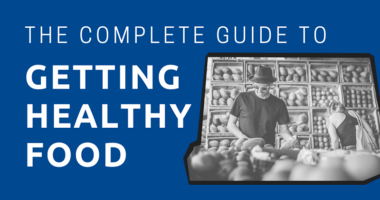 The Complete Guide to Getting Healthy Food 2023-06-26 Thailand is like the kitchen of the world. You have many choices for healthy food in Thailand. If you want…
The Complete Guide to Getting Healthy Food 2023-06-26 Thailand is like the kitchen of the world. You have many choices for healthy food in Thailand. If you want… -
 Free Yet Fun Options on Staying Fit in Thailand 2023-06-26 Staying fit in Thailand isn't easy. Liquid calories come in many forms, and with more holidays than months in a…
Free Yet Fun Options on Staying Fit in Thailand 2023-06-26 Staying fit in Thailand isn't easy. Liquid calories come in many forms, and with more holidays than months in a… -
 Where to Get Free Fitness Options in Thailand 2023-06-26 Even though Thailand is a lot cheaper than many European and North American countries for a great many things, fitness…
Where to Get Free Fitness Options in Thailand 2023-06-26 Even though Thailand is a lot cheaper than many European and North American countries for a great many things, fitness… -
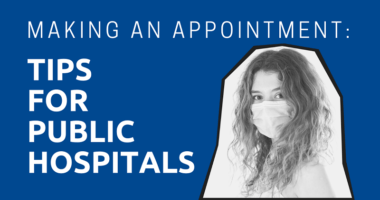 Making an Appointment: Tips for Public Hospitals 2023-06-29 Although you can walk in to any hospital in Thailand and get treatment, it’s better to make an appointment by…
Making an Appointment: Tips for Public Hospitals 2023-06-29 Although you can walk in to any hospital in Thailand and get treatment, it’s better to make an appointment by… -
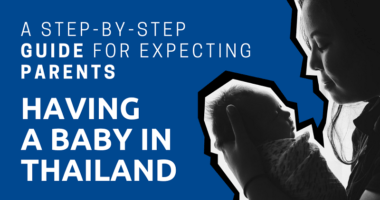 Having a Baby in Thailand: A Step-by-Step Guide for Expecting Parents 2023-09-26 What to expect when you're expecting in the kingdom.
Having a Baby in Thailand: A Step-by-Step Guide for Expecting Parents 2023-09-26 What to expect when you're expecting in the kingdom. -
 The Big List of Parks in Bangkok: The Best Parks, The Biggest, The Secret Gardens 2023-07-31 Bangkok is home to numerous parks, playgrounds, and green spaces that offer a welcome outdoors respite from the bustle of…
The Big List of Parks in Bangkok: The Best Parks, The Biggest, The Secret Gardens 2023-07-31 Bangkok is home to numerous parks, playgrounds, and green spaces that offer a welcome outdoors respite from the bustle of… -
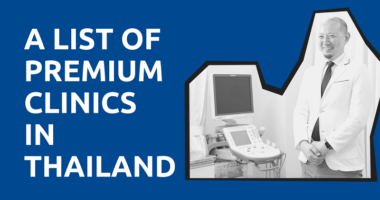 Getting the Quality Treatment at Affordable Price with Premium Clinics in Thailand 2023-06-26 Premium clinics are basically an upgraded version of a government hospital but provide medical care while offering less wait time,…
Getting the Quality Treatment at Affordable Price with Premium Clinics in Thailand 2023-06-26 Premium clinics are basically an upgraded version of a government hospital but provide medical care while offering less wait time,… -
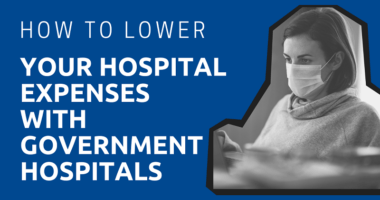 How to Lower Your Hospital Expenses with Government Hospitals 2023-06-26 Government hospitals in Thailand provide a good level of care at a very affordable price. Being under the Ministry of…
How to Lower Your Hospital Expenses with Government Hospitals 2023-06-26 Government hospitals in Thailand provide a good level of care at a very affordable price. Being under the Ministry of… -
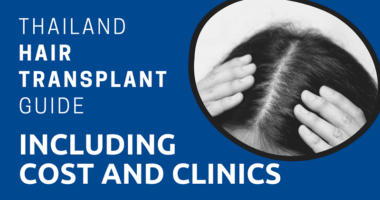 How to Choose the Best Clinic to Get Hair Transplant in Thailand 2023-05-29 Everything you need to know about restoring your hair growth in the country.
How to Choose the Best Clinic to Get Hair Transplant in Thailand 2023-05-29 Everything you need to know about restoring your hair growth in the country. -
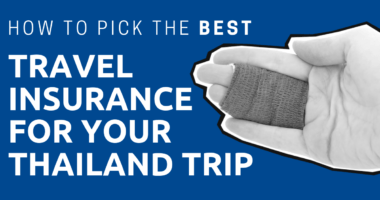 How to Pick the Best Travel Insurance for Your Thailand Trip 2023-04-13 When you travel to Thailand, one of the things we usually think about while planning a trip is about whether…
How to Pick the Best Travel Insurance for Your Thailand Trip 2023-04-13 When you travel to Thailand, one of the things we usually think about while planning a trip is about whether… -
 Best Places for Yoga Retreats in Thailand 2023-02-20 Going on a yoga retreat in Thailand is a popular way to escape the hustle and bustle of daily life…
Best Places for Yoga Retreats in Thailand 2023-02-20 Going on a yoga retreat in Thailand is a popular way to escape the hustle and bustle of daily life… -
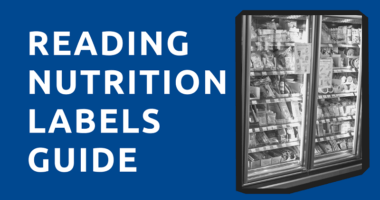 Reading Nutrition Labels Guide 2023-06-26 “You are what you eat” is the important idea of living a healthy life. Before putting that snack or chocolate…
Reading Nutrition Labels Guide 2023-06-26 “You are what you eat” is the important idea of living a healthy life. Before putting that snack or chocolate… -
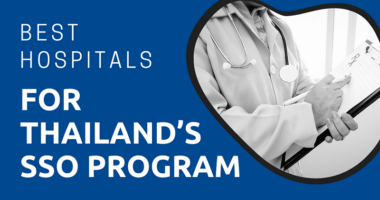 Best Hospitals for Thailand’s SSO Program 2024-02-21 Choosing a good hospital for your SSO program means you can get treated without having to pay anything out of…
Best Hospitals for Thailand’s SSO Program 2024-02-21 Choosing a good hospital for your SSO program means you can get treated without having to pay anything out of… -
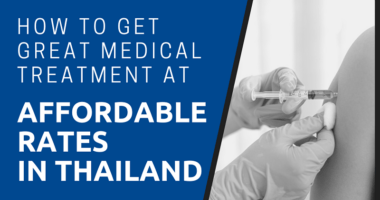 How to Get Great Medical Treatment at Affordable Rates in Thailand 2023-08-28 If you want to save money on medical treatment in Thailand, think about going to premium clinics. The prices you’ll…
How to Get Great Medical Treatment at Affordable Rates in Thailand 2023-08-28 If you want to save money on medical treatment in Thailand, think about going to premium clinics. The prices you’ll… -
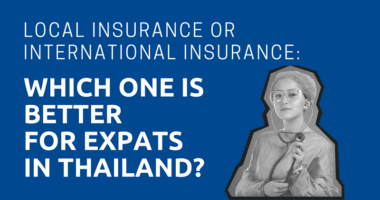 Local Insurance or International Insurance: Which One is Better for Expats in Thailand? 2023-06-26 When it comes to buying health insurance in Thailand, you have two choices – local insurance provided by insurance companies…
Local Insurance or International Insurance: Which One is Better for Expats in Thailand? 2023-06-26 When it comes to buying health insurance in Thailand, you have two choices – local insurance provided by insurance companies… -
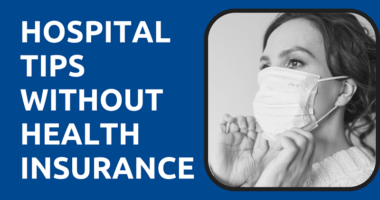 Hospital Tips Without Health Insurance 2023-08-28 There’s always a difference of opinion when it comes to health insurance in Thailand. Some foreigners choose not to get,…
Hospital Tips Without Health Insurance 2023-08-28 There’s always a difference of opinion when it comes to health insurance in Thailand. Some foreigners choose not to get,… -
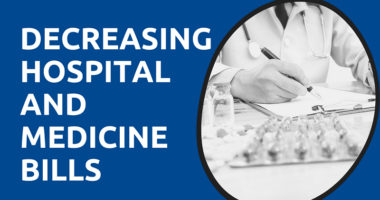 How to Save Over 300% of the Cost of Medication 2023-09-28 Your biggest expense at a hospital can be medication. Private hospitals are known for charging 400% of the original cost…
How to Save Over 300% of the Cost of Medication 2023-09-28 Your biggest expense at a hospital can be medication. Private hospitals are known for charging 400% of the original cost… -
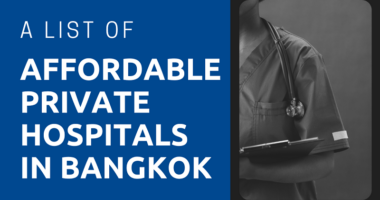 A List of Affordable Private Hospitals in Bangkok 2023-06-28 Here’s a list of affordable private hospitals in Bangkok. The services, expertise, and standards you’ll get at these hospitals is…
A List of Affordable Private Hospitals in Bangkok 2023-06-28 Here’s a list of affordable private hospitals in Bangkok. The services, expertise, and standards you’ll get at these hospitals is… -
 Muay Thai in Thailand: Gear, Gym Reviews, Stadiums, Podcasts, and More 2023-06-28 If you’re in Thailand and want to get some training in, buy some gear, watch some fights, or read up…
Muay Thai in Thailand: Gear, Gym Reviews, Stadiums, Podcasts, and More 2023-06-28 If you’re in Thailand and want to get some training in, buy some gear, watch some fights, or read up… -
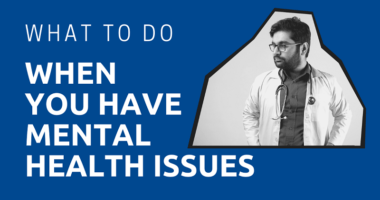 What to Do When You Have Mental Health Issues 2023-09-26 Mental health is one of the least talked about, but most important, issues for foreigners living in Thailand. For the…
What to Do When You Have Mental Health Issues 2023-09-26 Mental health is one of the least talked about, but most important, issues for foreigners living in Thailand. For the… -
 How to Get Organic Food and Eat Clean in Bangkok 2023-04-06 Most of us know that eating healthy, pesticide-free food and exercising are the keys to long life. I believe that…
How to Get Organic Food and Eat Clean in Bangkok 2023-04-06 Most of us know that eating healthy, pesticide-free food and exercising are the keys to long life. I believe that… -
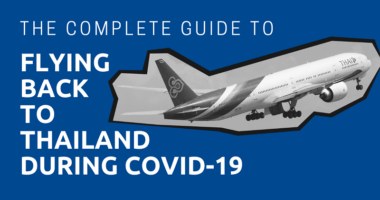 The Complete Guide to Flying Back to Thailand During COVID-19 2022-01-19 Although it’s not easy to fly to Thailand during COVID-19, it’s entirely possible. You need to have the proper visa…
The Complete Guide to Flying Back to Thailand During COVID-19 2022-01-19 Although it’s not easy to fly to Thailand during COVID-19, it’s entirely possible. You need to have the proper visa… -
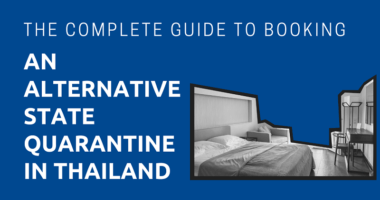 The Complete Guide to Booking an Alternative State Quarantine in Thailand 2023-06-30 COVID-19 has brought a new normal to everyone in the world. One of these is staying in quarantine after travel. …
The Complete Guide to Booking an Alternative State Quarantine in Thailand 2023-06-30 COVID-19 has brought a new normal to everyone in the world. One of these is staying in quarantine after travel. … -
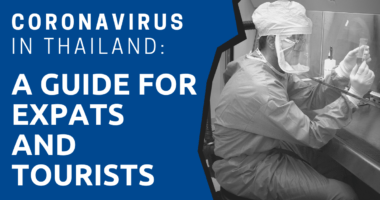 Coronavirus in Thailand: Numbers, News and Helpful Resources 2023-08-29 The 2019 Novel Coronavirus is dominating the news in the region. A lot of expats and visitors are wondering what…
Coronavirus in Thailand: Numbers, News and Helpful Resources 2023-08-29 The 2019 Novel Coronavirus is dominating the news in the region. A lot of expats and visitors are wondering what… -
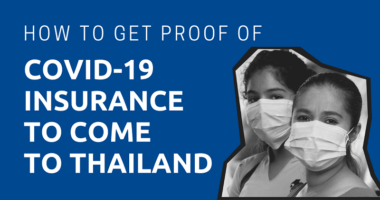 How to Get Proof of Covid-19 Insurance to Come to Thailand 2023-06-30 Since Covid-19 hit the whole world in 2020, insurance with Covid-19 coverage has become necessary in order to fly to…
How to Get Proof of Covid-19 Insurance to Come to Thailand 2023-06-30 Since Covid-19 hit the whole world in 2020, insurance with Covid-19 coverage has become necessary in order to fly to… -
 Recap of Our Muay Thai AMA with Frances Watthanaya 2023-08-29 On April 11th, Frances Watthanaya, of Wor. Watthana Gym, appeared on our monthly Ask-Me-Anything (AMA) in our Thailand Starter Kit…
Recap of Our Muay Thai AMA with Frances Watthanaya 2023-08-29 On April 11th, Frances Watthanaya, of Wor. Watthana Gym, appeared on our monthly Ask-Me-Anything (AMA) in our Thailand Starter Kit… -
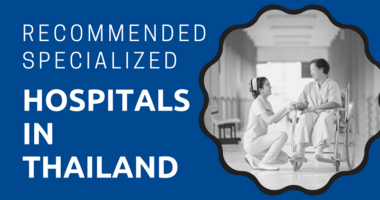 Recommended Specialized Hospitals in Thailand 2023-06-28 In Thailand, there are many hospitals that treat specific diseases. When visiting these hospitals, you’ll see a doctor who has…
Recommended Specialized Hospitals in Thailand 2023-06-28 In Thailand, there are many hospitals that treat specific diseases. When visiting these hospitals, you’ll see a doctor who has… -
 AMA with Madon Angelica Padilla of Mister Prakan Insurance 2023-09-20 If you missed our latest AMA—or Ask Me Anything—with insurance representative Madon Angelica Padilla, you can find a summary of…
AMA with Madon Angelica Padilla of Mister Prakan Insurance 2023-09-20 If you missed our latest AMA—or Ask Me Anything—with insurance representative Madon Angelica Padilla, you can find a summary of…
